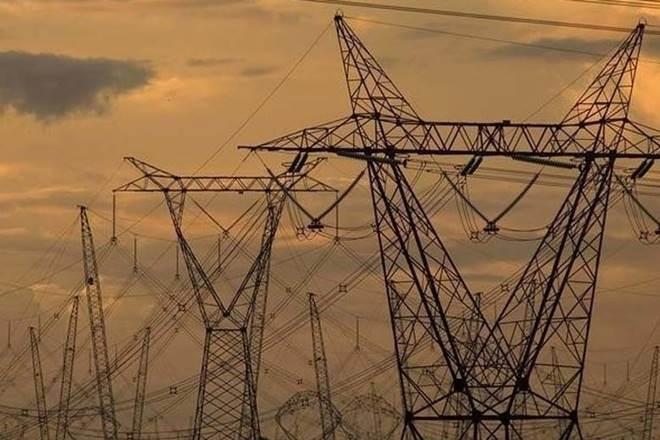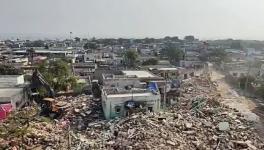Gujarat Revokes Power Tariff Hike: Adani, Essar to Gain?

Image for representational use only.
Mumbai/Gurugram: July 16, 2020
On July 12, the Cabinet of the Government of Gujarat announced that it had decided to revoke a government resolution (GR) of December 2018 that would bring down electricity tariffs. A number of news reports have described the decision as a “blow” to three major private power producers in the state––including two of the largest power plants in India, located near the coast of Gujarat––that are owned by companies from the Adani, Tata and Essar groups. These three plants together supply close to half (45%) of the electricity consumed in the state.
The Gujarat government’s claim is far from accurate. In fact, the state government’s decision is expected to help the power producers much more than electricity consumers. This article explains why.
Days after residents across Ahmedabad outraged over unusually high electricity bills, the Gujarat government revoked its earlier resolution, granting permission to the three private power producers to hike their tariffs on account of the higher costs of coal imported from Indonesia that is used as fuel in their plants. Attributing its decision to revoke the GR to a drastic fall in prices of Indonesian coal, the Gujarat government claimed the earlier resolution was no longer “fulfilling its objective and purpose” and revoked it “to safeguard the interest of the consumers.”
Tariffs May Have Come Down Further
A closer look at the details of contractual arrangements between the private power producers and the state government-owned power distribution company, reveals the fact that in the case of two of the three power plants, electricity tariffs may have been even lower had the Gujarat government not revoked its earlier resolution. Thus, a decision taken ostensibly in the interest of consumers may reduce the benefit consumers may have otherwise received.
The 2018 GR was supposed to lead to “Supplementary Power Purchase Agreements” (SPPAs) being signed between the power producers and the distribution company. A formula was agreed upon, that related the tariff directly to the prices of imported Indonesian coal.
These contracts allowed the power producers to charge higher tariffs than they had committed to in the past, during the process of competitive bidding for the right to sell power to the state government’s electricity distribution company. This was on account of the fact that Indonesian coal prices had increased significantly in 2010 due to decisions by that country’s government, after tariffs of the three Indian companies had been fixed on the basis of substantially lower prices.
At the time, Indonesian coal was priced at over $100 per metric tonne. In June 2020, Indonesian coal prices reached their lowest point in four years, at $52.80 per tonne. According to the power tariff formula in the SPPAs, this would have led to a significant corresponding drop in the tariffs the power producers could charge the distribution company, and ultimately, power consumers.
The decision by the Gujarat government to revoke the GR of 2018 implies that the consumer stands to lose this benefit, with the contracts reverting to an older tariff rate that priced Indonesian coal much higher than its present prices.
Chequered Background
The Gujarat government’s decision is the latest development in a series of contentious legal disputes around the contracts between the three private power producers and the state government-owned power distribution company that began nearly a decade ago.
-
Tata Power, through its subsidiary Coastal Gujarat Power Limited (CGPL), runs a 4,150 megawatt (MW) capacity Ultra Mega Power Project (UMPP) located in Mundra, near the Gujarat coast.
-
Adani Power, through its subsidiary Adani Power Mundra Limited (APML), runs a plant with a bigger installed capacity of 4,620 MW inside the special economic zone (SEZ) that the group owns in Mundra.
-
The Essar group, controlled by the Ruia family, runs a 1,200 MW capacity power plant through Essar Power Gujarat Limited (EPGL) in Salaya, roughly 60 kilometres away from Mundra, southwards across the Gulf of Kutch.
The contractual arrangements that govern the supply and distribution of electricity are Power Purchase Agreements (PPAs), signed by the companies with the Gujarat Urja Vikas Nigam Limited (GUVNL) – a state government-owned power distribution company. These PPAs, that were signed at different points in time in the mid to late-2000s, were the result of the power generating companies bidding to supply power to GUVNL at the lowest tariff rates, in competitive auctions for the contracts.
The winning bids had been based on coal supply agreements that the power generators had arrived at with coal suppliers in Indonesia. The price of coal, the raw material used to generate electricity, was dependent on market forces.
In September 2010, the Indonesian government passed a law that “benchmarked” the price of that country’s coal to international prices. Since then, an Indonesian government authority has officially notified the “benchmark” price of coal every month. This led to prices of Indonesian coal rising significantly above the levels at which the Indian power producers were able to procure it earlier.
The companies then approached the Central Electricity Regulatory Commission (CERC), seeking permission of the regulatory authority to hike electricity tariffs to correspond to the rise in Indonesian coal prices. The firms invoked “force majeure” clauses.
A force majeure clause is commonly used in contracts to free contracting parties from liability or obligation when an extraordinary event beyond the control of the parties takes place––such events include a war, an epidemic, a riot, a strike or a development that is often described in legal parlance as an “act of God.”
The litigation involving the Adani, Tata and Essar group companies and the regulatory authorities went back and forth multiple times and ended up in the Supreme Court of India. The private companies ultimately lost their claims.
In a landmark judgement issued in 2017 (reported on in detail by one of these authors), the country’s apex court ruled that once the power generators had committed to take on the risk of fluctuations in fuel costs by bidding for the PPAs at a certain level, the burden of bearing the price increase would fall onto them as well under the terms of the PPAs, and also as per the terms of the competitive bidding process specified in The Electricity Act, 2003.
Companies Under Financial Stress
Following the Supreme Court’s decision, the three power plants were under increasing financial distress. EGPL’s power plant was declared a non performing asset (NPA) by creditor banks while the APML and CGPL plants were both classified as “stressed assets.”
With the banks under pressure from the Reserve Bank of India to initiate insolvency proceedings against companies that had been declared NPAs, the companies even offered to sell ownership of their power plants to the Gujarat government for a token figure of Rs 1 each, provided the state government took over their liabilities.
It was at this juncture that the Gujarat government constituted a High Powered Committee led by retired Supreme Court judge R.K. Agrawal to study the situation and recommend a path forward. The three-member committee, which also included former Deputy Governor of the Reserve Bank of India S.S. Mundra and former Chairman of the Central Electricity Regulatory Commssion (CERC) Pramod Deo, submitted its report in October 2018, a draft copy of which was made public by these authors in NewsClick in September 2018.
The report recommended a “package of measures wherein the burden of hardships will have to borne by all the stakeholders”––the power generating companies, their creditor banks, and power consumers. All losses incurred up to October 2018 were to be absorbed by the generators, while subsequent power tariffs would be hiked in accordance with a formula that directly linked the tariff to the cost of Indonesian coal, and the increased tariff burden would be shared between Gujarat’s power consumers and the creditor banks.
In a government resolution dated December 1, 2018, the Gujarat government accepted the recommendations of the High Powered Committee. It then went on to sign Supplementary PPAs with two of the three power producing companies (APML and EPGL) that were then approved by the CERC (the third SPPA, with CGPL, was not concluded).
These SPPAs have been the subject of a number of legal challenges since, with GUVNL claiming a violation of its terms in one case. Various stakeholder groups are also challenging the validity of the SPPAs that, as reported by these authors, are perceived as “undermining” the Supreme Court’s 2017 verdict.
The July 12 decision of the Gujarat government has revoked this resolution of December 1, 2018, on the basis of which the SPPAs were to be signed.
Gujarat Government’s New Order
The Gujarat government’s order, a copy of which is attached with this article, notes that the December 2018 GR “was issued for rehabilitation of the three imported coal based power projects” and notes that:
-
The supplemental PPA with CGPL “has not materialised so far.”
-
The supplemental PPA with EPGL was approved by the Gujarat Electricity Regulatory Commission in April 2020.
-
Of two PPAs with APML, one is the subject of a petition before the Supreme Court filed by the GUVNL, while the GUVNL has filed another petition before the CERC seeking the recall of approval of the supplemental PPA alleging violations on the part of the APML.
Further, the state government order notes that “as per the market trend of coal in Indonesia and the prices reflected in indices of repute, the coal is traded at below HBA index derived price in Indonesia.” The HBA index or the Harga Batubara Acuan index is the price of coal set by Indonesia’s Ministry of Energy and Mineral Resources that is fixed every month, “benchmarking” the price of Indonesian coal to global coal prices.
With these factors in mind, the Gujarat government order continues, the GR is “not achieving the objective and purpose for which it was resolved. Therefore it is necessary to rectify the situation in order to safeguard the public interest.”
Impact of Gujarat Order
Speaking to NewsClick, Shantanu Dixit, coordinator of the Prayas (Energy Group), a Pune-based non-governmental organisation recognised by the Indian government as a power consumers’ rights advocacy group, said that the decision of the Gujarat government to revoke the GR implied that the SPPAs signed on the basis of the GR will be scrapped.
Pramod Deo, the Mumbai-based former Chairman of the CERC and a member of the High Powered Committee, told NewsClick that “the power tariff determination process is not just an agreement between a buyer and seller, it involves multiple stakeholders including the consumer and the state government, as a result of which political considerations do become a part of the process.”
What political considerations, if any, may have been involved in the decision are a matter of speculation. However, the financial implications of the decision suggest, counter-intuitively, that the decision that is claimed to be intended to “safeguard” consumers’ interests may in fact end up doing the opposite, safeguarding the interests of the power generation companies at the expense of power consumers.
The logic is explained by Padamjit Singh, chief patron of the All India Power Engineers’ Federation (AIPEF), a representative body of engineers employed in the power sector that has challenged the legality of the order of the CERC approving the SPPAs.
In the SPPAs, he explained, the power tariff is the sum of a “fixed cost” and a “variable cost.” The hike on account of the rise in the cost of Indonesian coal is accounted for in a formula specified in the SPPAs for the variable cost.
Termed the Energy Charge Rate (ECR), the variable cost is defined as a directly-correlated function of the cost of coal. “Practically, therefore, if the (cost of) fuel increases it straightaway increases the ECR. Conversely, if the fuel rate reduces it directly results in a reduction of ECR,” the Patiala -based Singh told NewsClick in an interview.
Taking the case of the SPPA between the Adani group company APML and the GUVNL, he clarified further: “Hence, while the SPPA ensures that Adani can get recovery of fuel cost if it increases, it also implies that should coal costs come down it would result in a proportionate reduction of the ECR.
The SPPAs were finalised in 2018 against a backdrop of higher fuel costs to ensure that the power generator can recover the fuel costs through higher ECR. Now the pendulum has swung in the other direction and the price of Indonesian coal is reportedly nearly half the level prevailing a decade ago at around US$52 per tonne. Under these circumstances, electricity consumers should have to pay less because of the reduction in the ECR. So it would have been to the consumer’s benefit if the SPPA formula were to be continued. The SPPA formula should have been continued to reap the benefit of the lower ECR.”
The Gujarat government, however, has decided to do just the opposite: instead of reaping the benefit of the lower tariff that the formula in the SPPAs would have guaranteed, it has decided to revoke the resolution that formed the basis of the SPPAs.
Under the terms of the SPPAs, the next step is for the GUVNL to issue “termination notices” to the power generating companies declaring its intent to terminate the SPPAs in accordance with the Gujarat government’s decision.
Responses From the Power Producers
Questionnaires were sent by email on July 13 to representatives of the three power producers, companies in the Adani, Tata and Essar groups, seeking their responses to the Gujarat government’s decision. We asked them whether they had received termination notices under the SPPAs from the GUVNL.
The following statement was sent to NewsClick by Tata Power:
“With regards to the Gujarat Government revoking the earlier order dated 1st Dec. 2018 on signing of supplemental PPA for CGPL, Mundra, our understanding based on recent discussions with concerned authorities is that the Government Resolution dated 1.12.2018 based on the High Powered Committee recommendations has been revoked by the Government of Gujarat due to low prices of international coal.
However, the amendment to the PPA with Coastal Gujarat Power limited (CGPL) will still be considered with HPC conditions although with few additional conditions in view of the recent order of GERC in the case of Essar Power. Hence in our view, the cancellation of GR will not impact the progress of the ongoing discussions with CGPL on the supplemental PPA.
The company is examining all the aspects of the HPC terms in view of the latest low Imported coal prices and its long term trends.
It may be noted that based on legal opinion Gujarat Government has also agreed that separate Supplemental PPA can be finalised with CGPL instead of the composite common PPA, which was envisaged earlier with all the five States (sic).”
A spokesperson for the Essar group declined comment describing the matter as “a developing situation.”
No response was received from the Adani group.
No Response from Gujarat Government
A questionnaire on 13 July was also sent to Saurabhbhai Patel, the Gujarat Minister of Energy, with a copy to Additional Chief Secretary (Power) Sunaina Tomar. Tomar is also the Chairperson of the GUVNL. The following questions were posed to both of them:
-
When the tariff rates calculated as per the SPPA formula is lower than as per the original PPA, why has the Government of Gujarat decided to revoke the GR dated December 1, 2018?
-
If the power producer is to receive the benefit of fuel cost pass-through for higher fuel costs, should not the power consumer receive the benefit of automatic tariff reduction for lower fuel costs?
-
Arguably, as the revocation of GR dated December 1, 2018 of the Government of Gujarat results in higher tariffs than if it was not revoked, the decision of the Gujarat cabinet benefits the private power producers including APML, at the expense of the power consumer. What are your comments and observations in this regard?
-
Has the state government owned electricity distribution company Gujarat Urja Vikas Nigam Limited (GUVNL) communicated to the three private power producing companies Adani Mundra Power Limited (AMPL), Coastal Gujarat Power Limited (in the Tata group) and Essar Power Gujarat Limited, its intent to terminate the Supplementary PPAs with these three companies?
No response was received from Patel or Tomar at the time of publication. This article will be updated with any response that is received.
The writers are independent journalists.
Govt. Resolution Dated 12.06.2020 (1) by Newsclick on Scribd
Get the latest reports & analysis with people's perspective on Protests, movements & deep analytical videos, discussions of the current affairs in your Telegram app. Subscribe to NewsClick's Telegram channel & get Real-Time updates on stories, as they get published on our website.
























